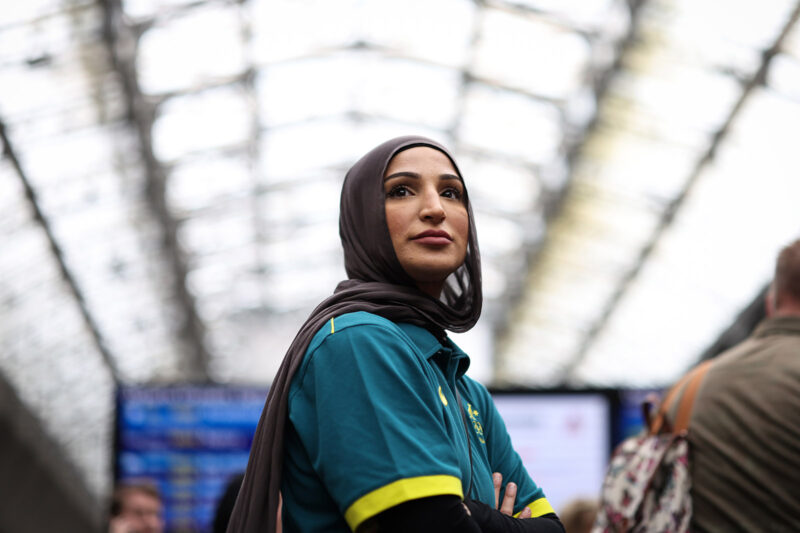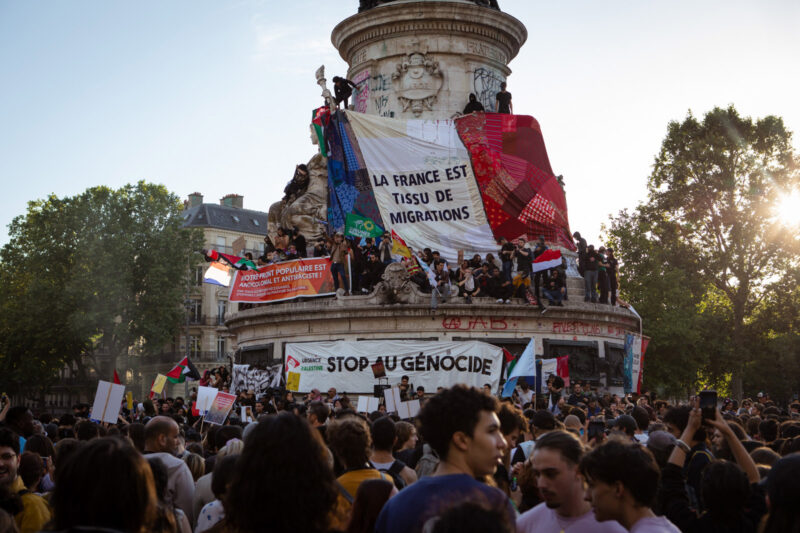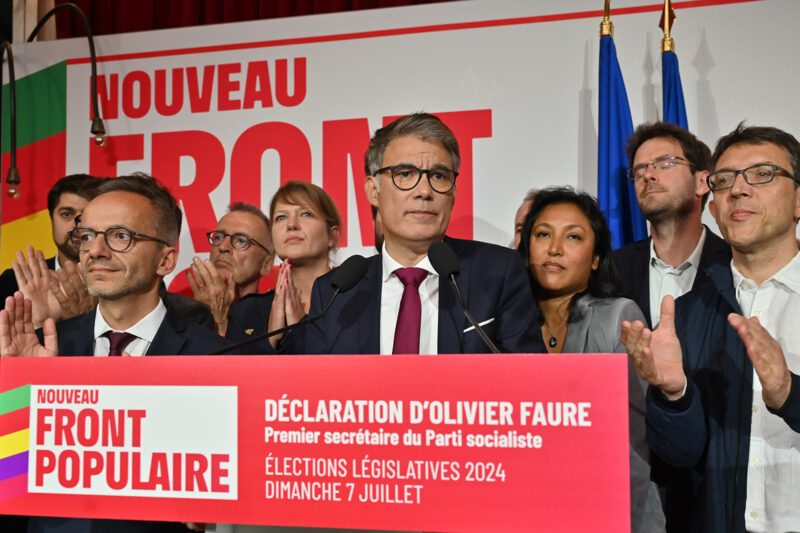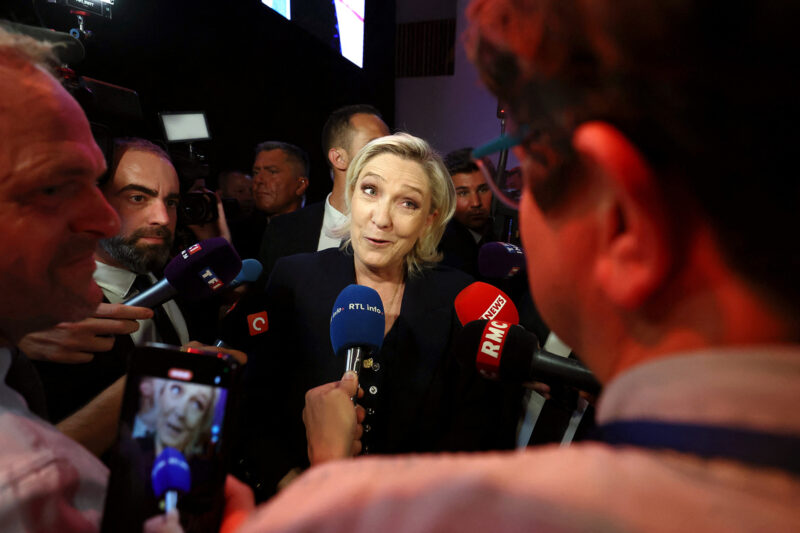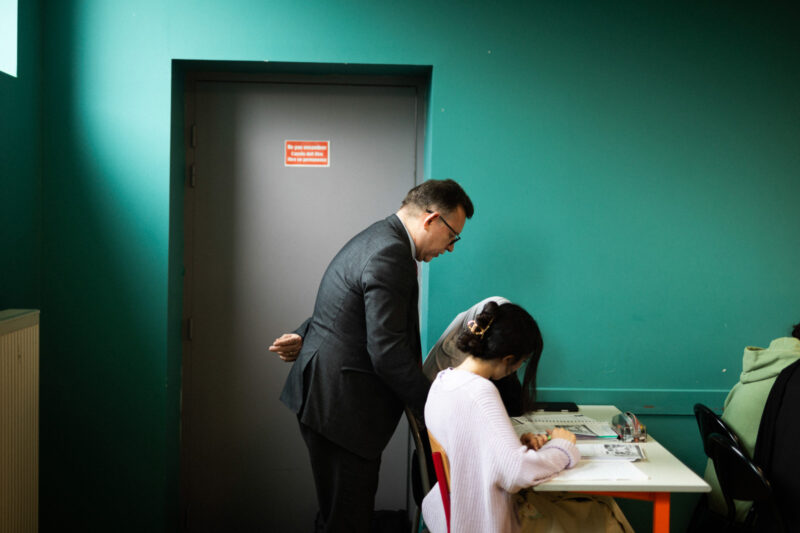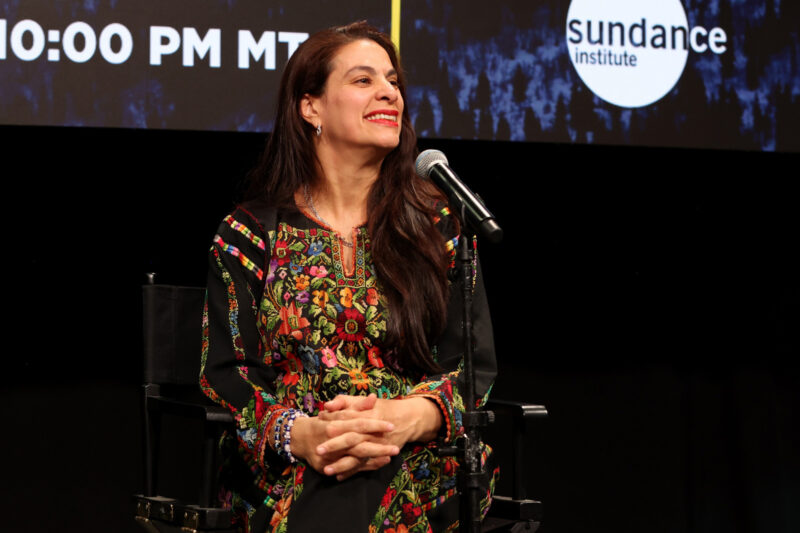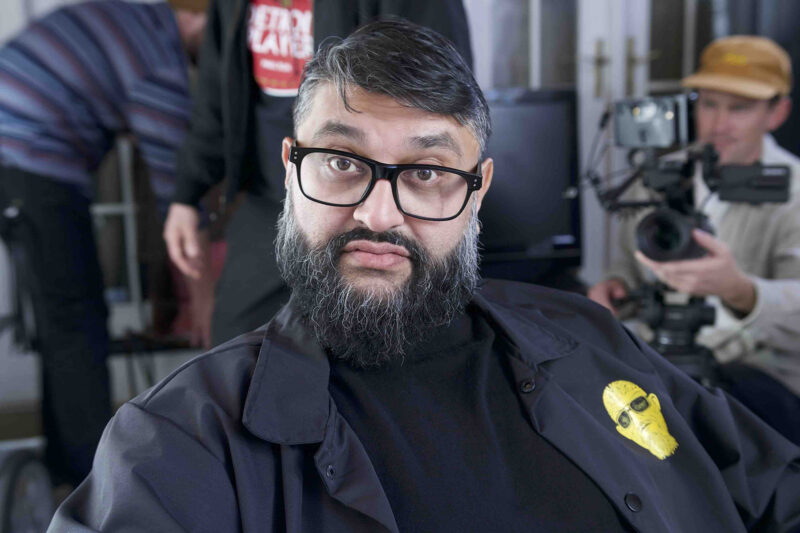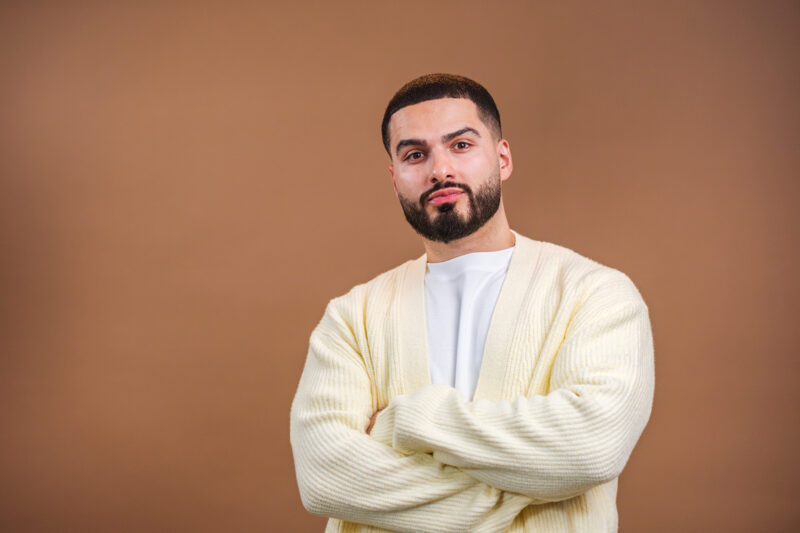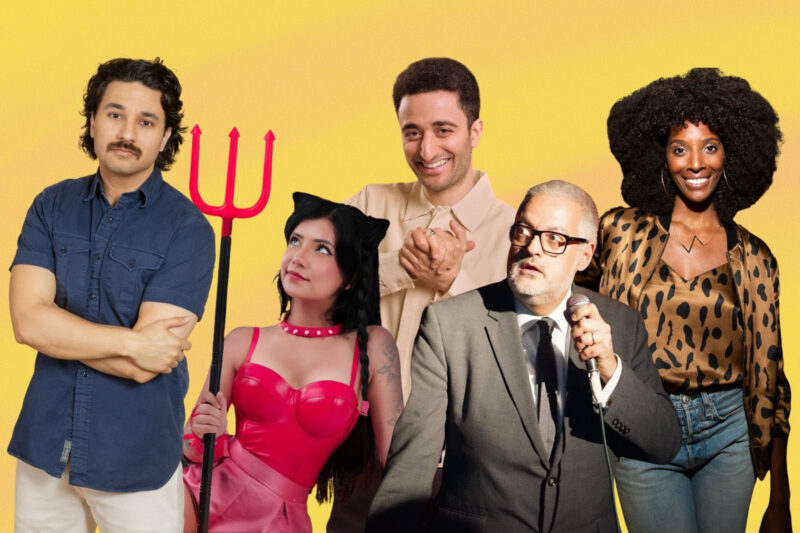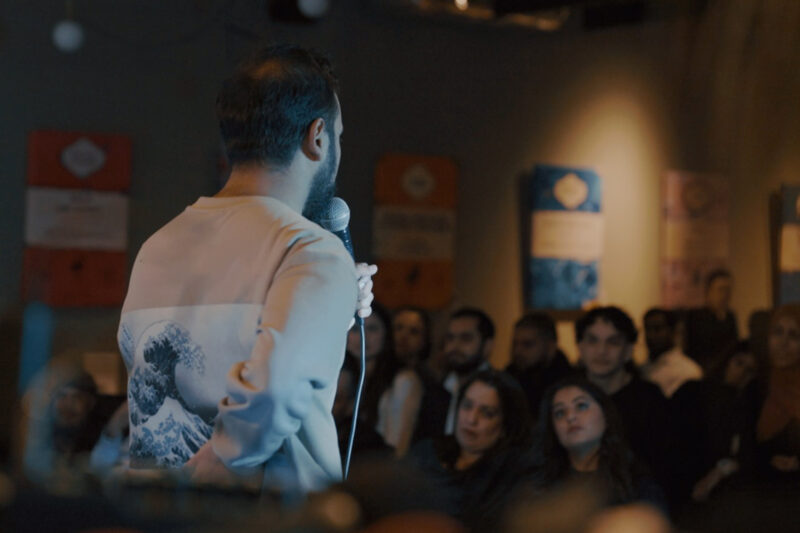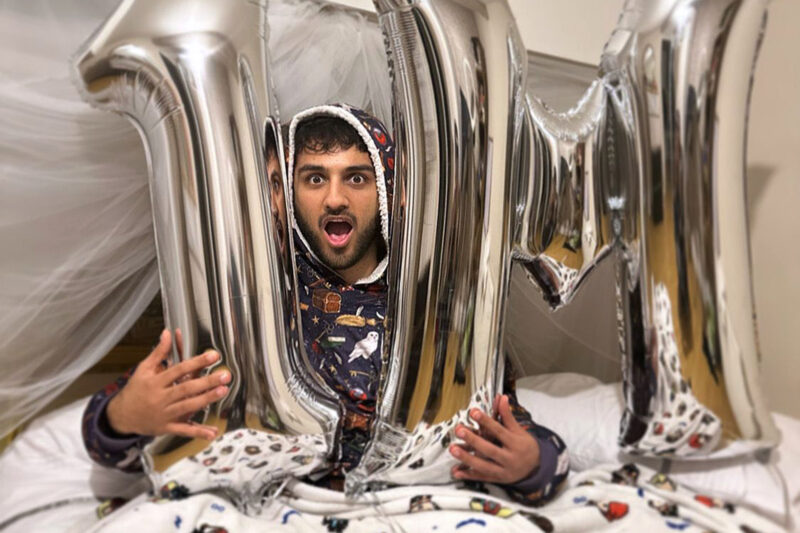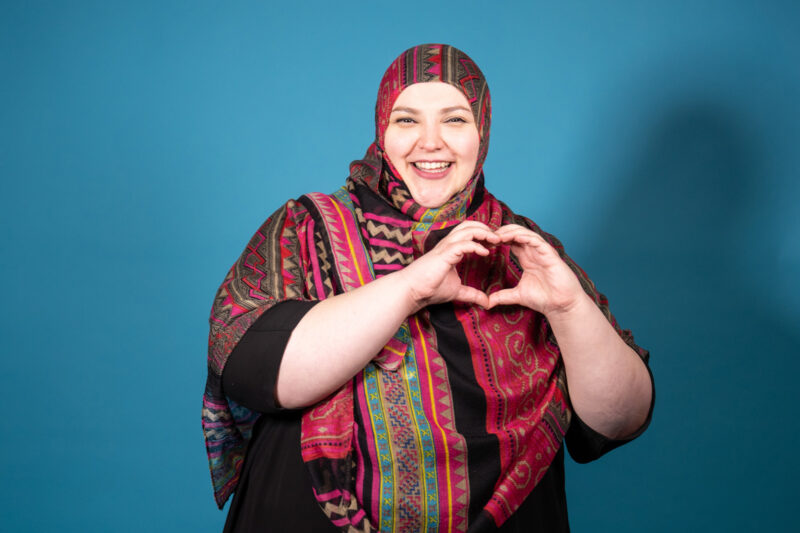‘We’ve got things to say’
After decades of ghettoisation, French Muslims have found their voice in the booming standup comedy scene they helped to build
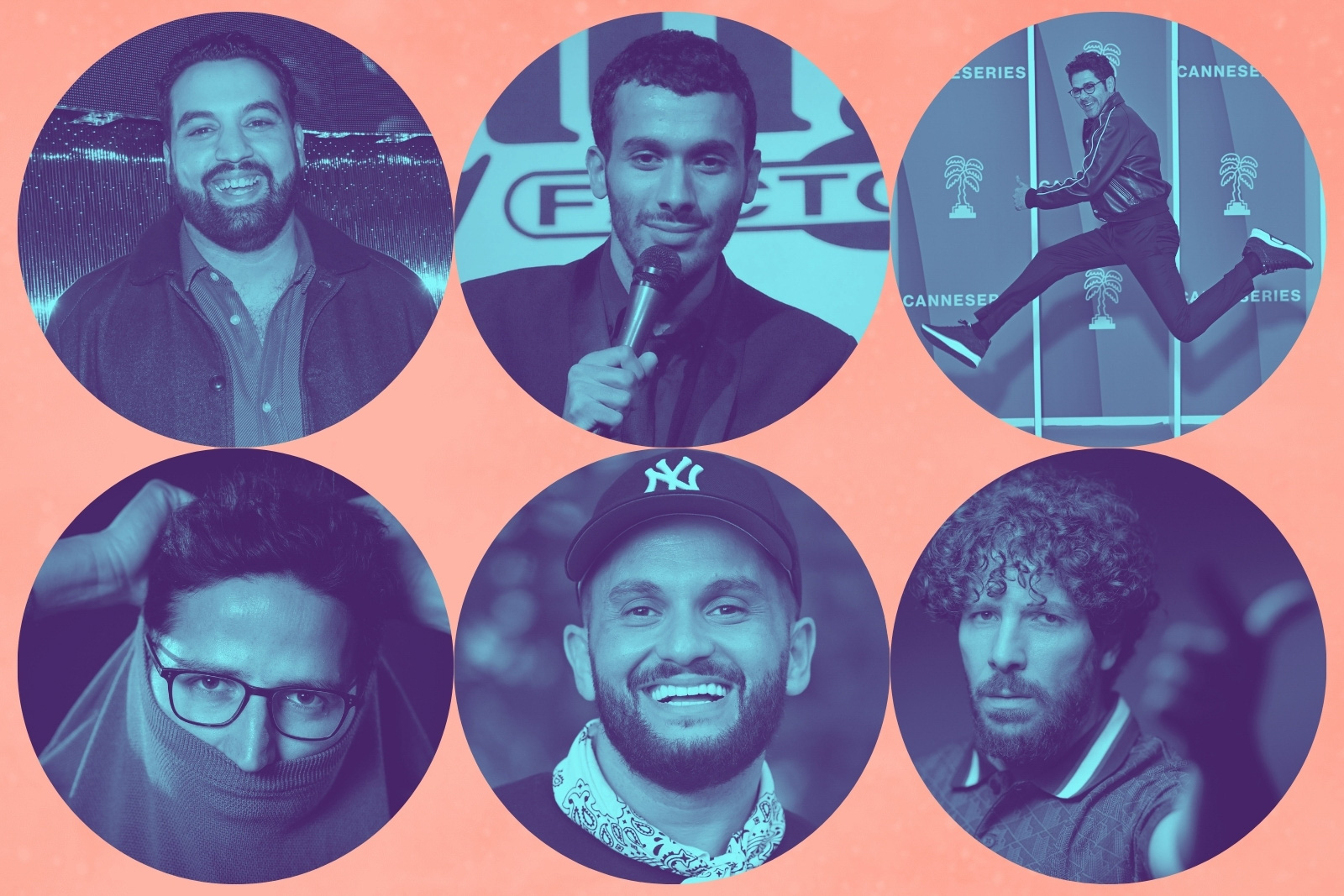
On 22 June, Redouane Bougheraba, the man leading France’s comedy boom, will become the first comedian to headline the Orange Velodrome stadium. Home of football team Olympique de Marseille, the venue has a capacity of 67,000 and Bougheraba, infamous for his roasting abilities, is excited by the number of potential victims it will offer him. “It’s going to be the longest front row in the world. I reckon there’ll be three hours of improvisation just ribbing people,” he recently told TV channel Canal+.
Bougheraba is one of many Muslim comedians who have fed France’s thriving standup scene over the past two decades. There is also the impish Malik Bentalha, basketball player-turned-standup Le Comte de Bouderbala, and the strident Yassine Belattar, to name a few. “As I say on stage, France is the country of rights of the white man,” Belattar said by phone as he prepared for a new leg of his latest tour En Marge (On the Margins). “Muslims are doing standup because we don’t have the right to be on the field elsewhere. We’ve got things to say.”
Muslim standups are increasingly reflecting the perspectives and concerns of a newly assertive multicultural France. Tarik Seddak, artistic director of the annual comedy festival at Paris’s Institute of the Arab World and formerly of Jamel Comedy Club — France’s first and most famous stand-up venue — explained that Muslim comedians of the 1990s and early 2000s felt obliged to play on Arab cliches to be accepted by mainstream audiences, with skits about drug-dealers and layabouts in the inner-city estates. French standup pioneer Jamel Debbouze mined this vein with material about illiterate pupils and panicky teachers in France’s priority education zones, mostly poor suburban areas where the government addresses inequalities in education. “More and more, Arab comedians are refusing to use the old cliches,” Seddak said. “Their communities no longer accept being imprisoned by them.”
Author Adrien Dénouette grew up in a multicultural community of mixed white French, Black, Muslim and Arab residents in Paris’s western suburbs. In his book Nik Ta Race (Fuck Your Race), he argues that the fundamentals of French humour, from the 1789 revolution onwards, are rooted in the economically deprived undermining the authority of the privileged. He believes that the unforgiving environment of France’s banlieue housing estates — where large sections of France’s marginalised Muslim community are raised — has gifted their comedians with extraordinary verbal skills.
“The power dynamics between people there are very strong because you have to exist in an environment that is pretty competitive and macho,” said Dénouette. “One form that can take is through verbal codes, being tested by mockery.”
This is the sparring ring in which the mid-1990s explosion in French standup was born. Before this, the country’s stage comedy was rooted in the more genteel café-théâtre tradition — one-man shows based around dramatised sketches. Debbouze was among the first French comedians to use direct standup, delivering wry dispatches from the projects, like his own in Trappes on the outskirts of Paris. Emerging at the same time as Mathieu Kassovitz’s award-winning film La Haine and hip-hop group NTM, Debbouze was a wake-up call to white bourgeois France, comparable to black standups such as Eddie Murphy and Chris Rock in 1980s America.
Following sell-out tours in the late 1990s, by 2006 Debbouze was a superstar. To highlight new talent from the margins he created the Jamel Comedy Club TV programme, which in 2008 evolved into the Comedy Club. Inspired by the look of New York standup clubs, it opened in a former cinema in Paris’s theatre district on Boulevard de la Bonne-Nouvelle. It was France’s first dedicated standup venue.
His critics argue that as he attained mainstream recognition, Debbouze softened the ethnicity of his comedy so as not to offend French secular sensibilities, falling into the role of an Arabe de service (token Arab). “I feel like that generation produced humour for a secular society. Their comedy was unifying,” Dénouette said. “They looked to seduce the French public for their own glory.”
Now, French Arab comedians have to decide whether to represent their community or enjoy mainstream acceptance. They have to balance the expectations of their home audience with the scrutiny particular to Muslims in the public eye, which is only worsening with the rise of the far-right, led by Marine Le Pen’s National Rally party. The question will inevitably be asked, do these performers’ values align with “French” ones? As a result, there is wariness in the French standup circuit of being branded with an ethnic or religious label – particularly that of Muslim. Of 16 interview requests put in for this piece, only four responded positively, of which only two are working standups (Ayoub Marceau and Belattar).
“Most comedians don’t trust the media,” Seddak explained. “They prefer to go on stage, which is a place of freedom, and control their own message.” Many of the current generation of standups do this by refusing to dwell on their cultural background. The scholarly Haroun, for example, often mocks religious extremism in his sets, but bypasses the question of his own faith by refusing to discuss his origins (which his name suggests are Arab).
The Jamel Comedy Club troupe includes athlete-turned-comic Ayoub Marceau, whose set is built on flouting the expectations of his audience. He often introduces his act by saying he has no message to deliver and employs a looping delivery that refuses to be pinned down. “I can make things change 10 times faster by not being what people expect on stage,” Marceau said. “If I do something absurd and different, rather than the insider humour of Arabs having to put up with this or that, people will say this guy impressed me, surprised me.”
Others take a more direct approach. Yassine Belattar’s sets are frank and politicised regarding ethnic realities in France, picking apart multicultural tensions and ironies in a way that is antithetical to the republican French ethos that refuses to differentiate between citizens based on their origins. He argued that his “non-concessional” comedy is a necessity in the face of the widespread hostility to French Muslims. Pointing to the lack of Arabs, or other minorities, in the mainstream media, he said: “They don’t want us to have a voice. They want us to be ashamed of being Muslim. But I’ve never felt more Muslim than when I was forbidden from being one.” He argues that being outspoken — as with his current vocal opposition to the war in Gaza — has come at a professional cost.
For quite different reasons, Belattar is also a controversial figure within the standup community. In part this is owing to his connections with France’s political elite. In 2018, the French president Emmanuel Macron asked him to be part of a special commission on urban affairs. He has also been ostracised for his conviction on charges of abusive behaviour towards entertainment-industry colleagues.
But even Belattar isn’t reviled to the same degree as the notorious Dieudonné M’bala M’bala, whose career tumbled from stellar heights the 1990s as a politically engaged provocateur to an antisemitic demagogue barred from performing in some regions of France. Despite his deeply problematic material, Dieudonné is still popular with some French Arabs who see him as a provocateur the authorities have been unable to muzzle. Dénouette believes that his enduring popularity reveals mainstream France’s dismissal of the life experiences and opinions of people in marginalised communities. “It’s proof that France doesn’t want to hear certain things. It still has enormous difficulty in acknowledging the realities in its communities.”
Mustapha el-Atrassi is the “demoniac” comedian Dénouette prefers to laud as the uncompromising enfant terrible who refused to play the house Arab. Recently retired, he was regarded as the “standups’ standup”. Dénouette compared el-Atrassi to the anarchic, US counterculture hero comedian Lenny Bruce in his fearlessness. “He says what no one else wants to. He ventures on to the terrain of sex, religious hypocrisy, the monstrosity and misery of the banlieues. And in doing that, he’s very violent.”
El-Atrassi has also provided an example of how to perform with complete independence. Already on national TV in his early 20s, he turned his back on the mainstream in 2015 to launch his now defunct production company Chicha Productions. A generation of French Arab standups, including Bougheraba, have followed this lead and pursued autonomy. If they are not dependent on mainstream media, they are less vulnerable to misrepresentation or marginalisation.
In Marceau’s eyes, the unique success of a performer like Bougheraba — who was asked to carry the Olympic torch in Marseille in May — obscures a deep, structural problem for Arab and Muslim standups. They may have created the standup scene in France, but they are still sidelined by the mainstream TV and radio networks booking standups as performers and pundits. “There are lots of Arabs in underground comedy, because those places are open to all,” he said. “It’s like on a building site: they need us at the start, but not once it’s finished. They don’t call us for bigger things.”
French Muslim standups exist today in a parallel mainstream, self-publicising through Instagram, YouTube and TikTok, drawing audiences from all backgrounds. But Dénouette believes there is a danger that a deepening rift between Arab comedians and the French media could result in their humour being ghettoised and eventually withering. Comedians from minority backgrounds in France face the additional challenge of having to safeguard their integrity in an increasingly polarised and volatile social and political landscape.
The solution may be engagement. Performers such as Malik Bentalha, who to date have avoided politics, are starting to enter the conversation. Bentalha recently performed a sketch parodying L’Heure des Pros, a show on right-wing channel C-News. In it, he apes a toadying spokesman for French imams on a panel of grotesques that includes a booze-swilling Sarkozyite and a white supremacist posing as a cleaned-up Marine Le Pen ally. The presenter ignores the only panellist offering sane viewpoints, an Arab academic. The sketch reached nearly seven million views on YouTube — proof that, in the face of denigration, laughter is still a powerful tool to redress an imbalance of power.
 Newsletter
Newsletter


